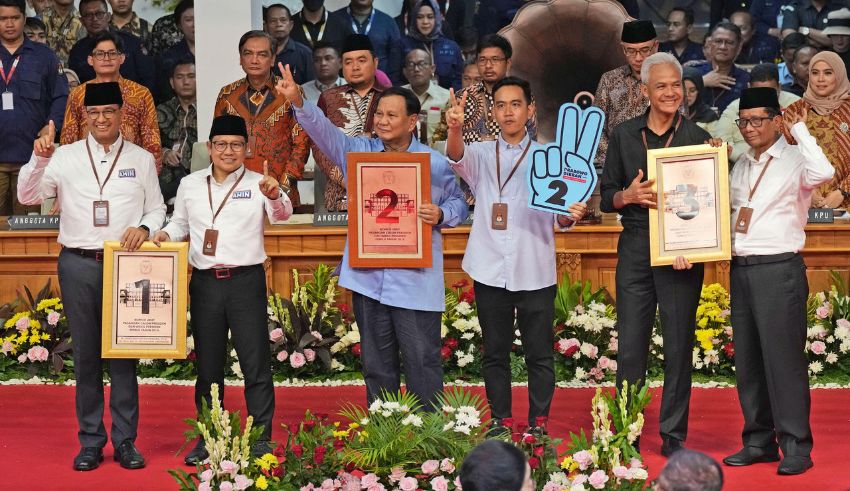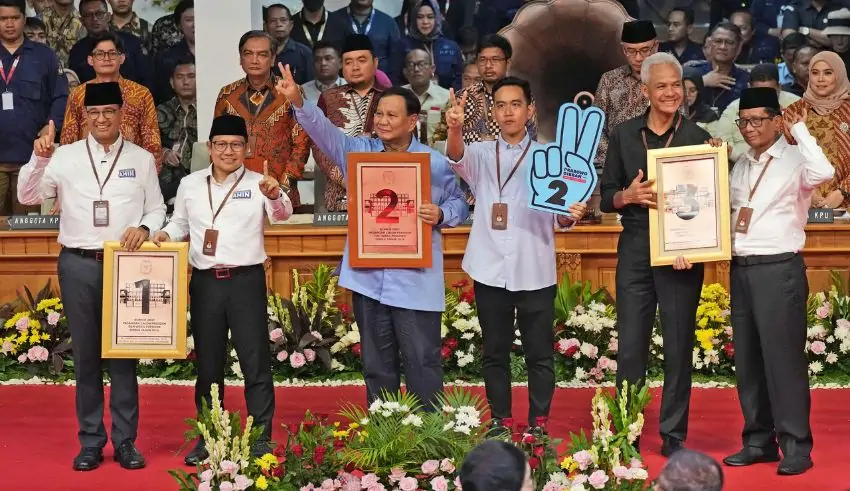

(C) China Dialogue
As Indonesia prepares to elect its next president and vice president in February 2024, the issue of China’s growing influence and presence in the country has become a source of contention and controversy.
China is Indonesia’s largest trading partner and a major investor in various infrastructure projects, such as the Jakarta-Bandung high-speed railway and the Batang Toru hydropower plant. However, China is also seen by many Indonesians as a threat to their sovereignty, security, and identity, due to its assertive actions in the South China Sea, its alleged mistreatment of ethnic Uyghurs in Xinjiang, and its perceived exploitation of Indonesian workers and resources.
Anti-China sentiments have been fueled by several incidents involving Chinese companies and nationals in Indonesia, such as the fatal shooting of an Indonesian worker by a Chinese supervisor at a mining site in January 2024, the discovery of thousands of illegal Chinese workers in various sectors, and the protests against the construction of a Chinese-backed dam that threatens the habitat of the endangered Tapanuli orangutan.
These incidents have sparked public outrage and criticism, and have been exploited by some political actors and groups to mobilize support and opposition against the incumbent government and its rivals.
The three main pairs of presidential candidates have different views and approaches on how to deal with China and its role in Indonesia’s development. The current frontrunners, Defense Minister Prabowo Subianto and Gibran Rakabuming Raka, the son of President Joko “Jokowi” Widodo, have expressed their support for continuing and expanding the cooperation with China, especially in the areas of infrastructure, trade, and investment.
They have argued that China is a strategic partner and a source of opportunity for Indonesia, and that the benefits of the cooperation outweigh the costs and risks. They have also defended the government’s policies and actions in handling the disputes and problems with China, such as the protection of Indonesian fishermen and workers, the negotiation of the debt and the terms of the projects, and the promotion of mutual respect and understanding.
The second pair, former Central Java governor Ganjar Pranowo and Mahfud MD, the coordinating minister for political, legal and security affairs, have adopted a more cautious and balanced stance on China.
They have acknowledged the importance and the potential of the cooperation with China, but they have also raised some concerns and reservations about the implications and the challenges of the cooperation.
They have called for a more transparent and accountable process of selecting and implementing the projects, a more fair and equitable distribution of the benefits and the burdens of the cooperation, and a more assertive and independent position of Indonesia in dealing with China’s interests and demands.
The third pair, former Jakarta governor Anies Baswedan and Muhaimin Iskandar, the chairman of the National Awakening Party (PKB), have taken a more critical and confrontational attitude toward China. They have accused the government of being too dependent and submissive to China, and of compromising Indonesia’s sovereignty and dignity in exchange for short-term gains and favors.
They have opposed and questioned the feasibility and the necessity of some of the flagship projects, such as the relocation of the capital city to Nusantara in Borneo and the development of the electric vehicle industry. They have also appealed to the nationalist and religious sentiments of the voters, and have vowed to protect and prioritize the interests and the rights of the Indonesian people and the nation.
The outcome of the 2024 election will have significant implications for Indonesia’s relations with China and its role in the region and the world. If Prabowo-Gibran win the election, Indonesia is likely to maintain and deepen its strategic partnership with China, and to pursue a pragmatic and cooperative approach in addressing the issues and the challenges of the cooperation. This would enhance Indonesia’s economic development and connectivity, but it could also increase its vulnerability and exposure to China’s influence and pressure.
If Ganjar-Mahfud wins the election, Indonesia is likely to adopt a more selective and diversified strategy in engaging with China, and to seek a more balanced and sustainable cooperation that respects Indonesia’s interests and values. This would reduce Indonesia’s dependence and risk on China, but it could also limit its opportunities and benefits from the cooperation.
If Anies-Muhaimin wins the election, Indonesia is likely to reduce and restrict its involvement and interaction with China, and to adopt a more nationalist and confrontational stance in dealing with China’s actions and ambitions. This would increase Indonesia’s autonomy and identity, but it could also damage its relations and reputation with China and other partners.
The 2024 election will also affect Indonesia’s position and influence in the regional and global affairs, especially in the context of the rising tensions and competition between the US and China. Indonesia, as the largest and the most populous country in Southeast Asia, has a vital role and responsibility in shaping and maintaining the stability and the order of the region. Indonesia’s choice of its next leaders and its policy toward China will have an impact on the dynamics and the direction of the regional cooperation and integration, such as the Association of Southeast Asian Nations (ASEAN), the Regional Comprehensive Economic Partnership (RCEP), and the Indo-Pacific concept.
Indonesia’s decision will also have an influence on the expectations and the perceptions of the major powers and the international community, such as the US, Japan, India, and Australia, who have their own interests and agendas in the region. Indonesia’s election, therefore, will not only determine its own future, but also the future of the region and the world.
The European Union and Singapore agreed to a transformative Digital Trade Agreement which serves to deepen their economic relations through…
If you are planning to fly via Malaysian Airlines or booked any of your travel through India or any of…
Music is a strongest medium to connect ourselves with the soul and any individual around the world because the emotion…
During the speech at the Financing Asia's Transition Conference the minister of environment in Malaysia called on ASEAN nations to…
The 61st Baeksang Arts Awards ceremony took place on 5 May 2025 at Seoul in South Korea and this glittering…
The fifth prisoner exchange took place on 6 May 2025 between Russia and Ukraine involving 205 prisoners and it is…
This website uses cookies.
Read More